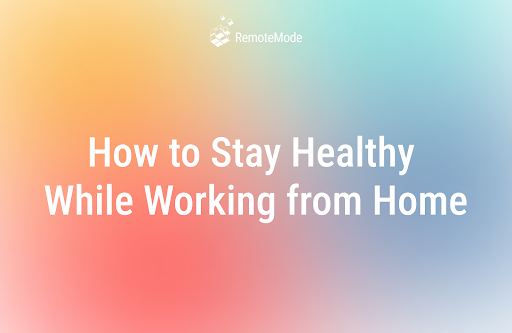Interview Like a Pro

Rehearsal takes the worry out of first-interview jitters
An interview is like an audition. Maybe you auditioned for your high school musical, the marching band, or the cheer squad. Or perhaps you tried out for a sports team or your church choir or a dance troop. Unless you are not a member of the human race, your nerves were probably on the verge of throwing your stomach on the floor and sending your heart rate through the roof. Nervousness is a natural response to unknown and potentially threatening situations. Your body pumps adrenaline to every organ and muscle to prepare you for flight or fight.
The flight-or-fight response is a good thing when you are facing mastodons and saber-toothed tigers. It’s not great, however, when you are sitting across the conference room table from a potential employer. The interviewer is not going to eat you, and all that adrenaline and tension starves your brain of blood and shuts down your cognitive functions. Facts you know cold are suddenly unavailable to you. You can’t remember even your own name. Poise? Ha! Your ancestors didn’t need poise when they were about to take down a wooly mammoth, but you desperately need it now.
So, how do you overcome the natural stress of a first interview? Take a tip from professionals who must face critical audiences and put on their best performance every day. How do actors, singers, dancers, athletes, motivational speakers, and hosts of others conquer their nerves? Many claim to have various tricks and mind games to keep their nerves under control, but they all have one technique in common—rehearsal. They all practice their performance before they go live. Through rehearsing, they have not only learned their lines or movements, but they have anticipated and thought about unpredictable situations and planned their reactions.
Rehearsing for a job interview is crucial to your confidence and comfort in the interview situation. When you face a prospective employer, you want that person to perceive you as a peer, a professional ready to step into the job and deliver the goods, not as a knock-kneed, pimply-faced high school kid trying out for the school play.
Below are tips and suggestions to help you plan and execute an effective interview rehearsal to prepare you for that all-important face-to-face meeting with your next manager.
Do your homework
Before you can rehearse, you need material. Actors have scripts, dancers have choreography, singers have sheet music. Create your own script.
Start with what you already know. Review your training course materials. If possible, retake exams. A test question from a class may very well show up during an interview. Review your hands-on projects and be ready to explain the problem you solved and how you solved it. Brush up on technical skills.
Remember, however, that only about half of the interview will delve into your technical abilities. The other half will be split between the interviewer getting to know you on a personal level and your getting to know the company and the position. So, prepare to answer the inevitable first question in every interview:
“Tell me a little about yourself.”
Determine what about your personality, experiences, characteristics, and work habits would be most helpful for the interviewer to know to decide if you are the right candidate for the job. Know what you will say ahead of time so you don’t babble and ramble.
Also, get to know the company. Look them up on LinkedIn and do a Google search. Know what the company does, their products and services, their advertising and slogans, and what others are saying about them. When you are given the opportunity, be ready to talk about what interests you about the company and ask cogent questions about the business to which the interviewer can respond. If you have nothing to ask, the interviewer may assume you are not really interested in the job or the company.
Practice answering questions
During your homework phase, you should have developed a list of potential questions an interviewer might ask you. Again, assume that half the questions are technical, job related, and the other half are personal. You should also have devised the answers to those questions. When you are seated in front of an interviewer, you don’t want to sound like you are reading from cue cards. You should sound not only knowledgeable but natural. The better you know your answers, the more natural you will sound when you explain them.
Consider making flash cards. Write a question on the front and your best-worded answer on the back. Go through the questions and try to give the answers without looking at the back of each card. If you have to look at an answer, keep that card in the stack for the next practice session. Don’t remove a card from the pile until you feel you have nailed the answer. The naturalness of your expression will come as you solidify your answer and can add personality to it.
Record yourself
It is hard to critique your delivery in the moment. So, set up your cell phone or a camera and turn it on to capture yourself as you practice your answers. Listen to your voice and expression. Look for annoying mannerisms in your speech, such as repetitive phrases. Many people say “like” and “you know” in practically every sentence that comes out of their mouths. Others begin every sentence with “Um.” If you hear bad speech habits, work to eliminate them.
Also note your appearance. Where do your eyes go? Practice looking steadily into the camera. Interviewers like eye contact. It portrays confidence and attention. Do you smile, frown, make weird faces? Practice speaking with a pleasant expression that is neither artificially happy or glum. What do you do with your hands? Artful gestures can add meaning to the conversation, but flailing about like a fish out of water conveys excessive nerves. On the other hand, knotting your fingers into a tight fist in your lap also shows you are terribly uncomfortable. Your posture should be attentively relaxed, not slouched but not bolt upright.
Rehearse with a partner
Recruit a family member, friend, or fellow student to act as the interviewer. Give your mock interviewer the questions to ask, and then practice your responses speaking to a live person. To be most effective, make the rehearsal as realistic as possible. Dress the part. If possible, know the dress code of the company with which you will interview, and dress one step above the standard. If the company is a totally casual shorts-Tshirt-and-flipflops type of place, plan to dress in business casual. If the company is typically business casual, consider wearing a nice business suit. Also, prepare a place to rehearse that looks like a business. Your real interview is not likely to occur at a kitchen table or in a lounge chair. The realism of your setting and clothing, as well as the ability to interact with a live person, will make the practice session more effective in calming your nerves and making you feel natural.
Final thoughts
While you can do much on your own to get ready for an interview, the ideal preparation involves guidance and feedback from a professional career counselor who knows the interview process intimately and has experience preparing people for successful interviews. Nothing is better than a mock interview with a seasoned professional to give you the true feel for a live interview. The feedback from such a person is invaluable.
RemoteMode’s full-cycle program includes interview rehearsals with our staff of career counselors. When you enroll in a RemoteMode career track to train for a remote tech job, a career counselor is assigned to help you prepare every aspect of your interview skills, including mock interviews to sharpen your answers and reduce your stress.
Career counselors at RemoteMode also help you with crafting a professional CV and creating an effective social media network to connect you with potential employers. In addition, a professional mentor is assigned to you to guide you through the program, answer questions, and ensure your success in training and gaining the skills you need for your new career.
Contact a RemoteMode career advisor today to learn how quickly you can go from learning to earning in a RemoteMode online training program in over a dozen career tracks.
Take the first step to your new remote career!






